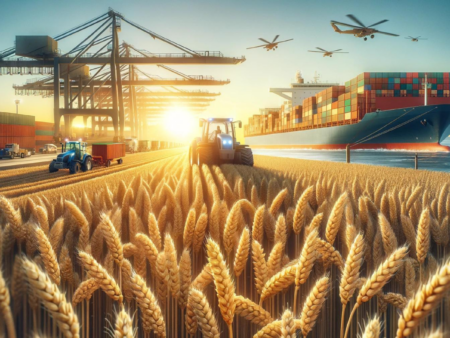
The aroma of freshly brewed coffee and the rich taste of chocolate are daily pleasures for many. Yet, behind these simple indulgences lie complex commodity chains with profound ethical implications. The cocoa and coffee industries, like many others, face pressing concerns related to sustainability, labor practices, and social responsibility. In this exploration, we delve into the ethical considerations that surround these beloved commodities.
Sourcing Beans: The Origins of Cocoa and Coffee
Cocoa and coffee, two of the world’s most beloved beverages, originate from the beans of tropical plants. Cocoa beans are harvested from cacao trees, primarily grown in West Africa, Latin America, and Southeast Asia. Coffee beans, on the other hand, are derived from coffee plants cultivated in regions such as Latin America, Africa, and Asia. These beans form the foundation of industries that drive economies and delight palates around the world.
Fair Trade and Beyond: Labor Ethics in Cocoa and Coffee
Behind the allure of cocoa and coffee, labor conditions and worker treatment have been subjects of scrutiny. Cocoa farming, in particular, has faced allegations of child labor and unfair compensation in some regions. Fair Trade certification has emerged as a response, aiming to ensure fair wages and improved conditions for farmers. Similarly, the coffee industry has faced issues like low wages and unstable incomes for coffee pickers.
The implementation of fair trade practices has helped alleviate some of these concerns, but questions about their effectiveness persist. Initiatives like direct trade and sustainability programs seek to address the root causes of labor issues, empowering farmers and ensuring ethical labor practices.
Environmental Impact: Sustainability in Cocoa and Coffee
The environmental footprint of cocoa and coffee production cannot be ignored. Both industries rely heavily on tropical forests, which are often cleared for farming. This deforestation contributes to habitat loss and threatens biodiversity. Moreover, the excessive use of pesticides and fertilizers in some cocoa and coffee farms raises concerns about water pollution and soil degradation.
Efforts are underway to promote sustainability in cocoa and coffee farming. Shade-grown coffee, for example, preserves forests and provides habitat for migratory birds. Cocoa agroforestry systems integrate cocoa trees with other vegetation, reducing environmental impact. Certifications such as Rainforest Alliance and UTZ signal a commitment to sustainable practices.
The Chocolate and Coffee Conundrum: Health and Social Impact
The consumption of cocoa and coffee products brings health considerations to the forefront. While moderate consumption of dark chocolate and coffee has been associated with health benefits, excessive intake can have adverse effects. The sugar content in chocolate products and the caffeine levels in coffee raise questions about public health and nutrition.
On a social level, the global demand for chocolate and coffee has contributed to the development of supply chains that link consumers in wealthy nations to producers in low-income countries. Fair trade and ethical sourcing initiatives aim to ensure that the benefits of this industry reach those at the source.

Beyond Beans: The Future of Cocoa and Coffee Ethics
The ethical considerations surrounding cocoa and coffee commodities are dynamic and evolving. Consumers are increasingly concerned about the origins of their favorite treats and the impact of their choices. This has prompted the rise of ethical consumerism, encouraging responsible purchasing decisions.
The future of cocoa and coffee ethics lies in continued efforts to address labor issues, promote sustainability, and enhance transparency in supply chains. Consumers, producers, and stakeholders must collaborate to ensure that these commodities remain a source of delight without compromising the well-being of the planet and its people.
A Cup of Responsibility
As we savor the rich flavors of cocoa and coffee, we must acknowledge the complex tapestry of ethical considerations woven into every cup. From the fields where beans are harvested to the communities that rely on their cultivation, these commodities hold profound implications for our world. Ethical sourcing, fair labor practices, and sustainability efforts are not mere buzzwords but vital steps toward a more responsible and compassionate future—one where our daily indulgences can bring joy to all involved.
In the realm of cocoa and coffee, ethical considerations are not optional; they are an essential ingredient in every cup and every bite.












